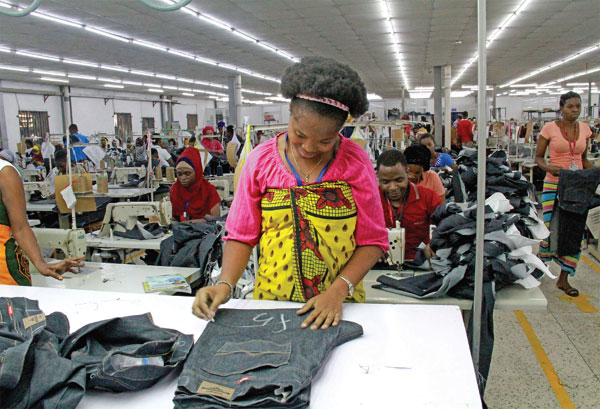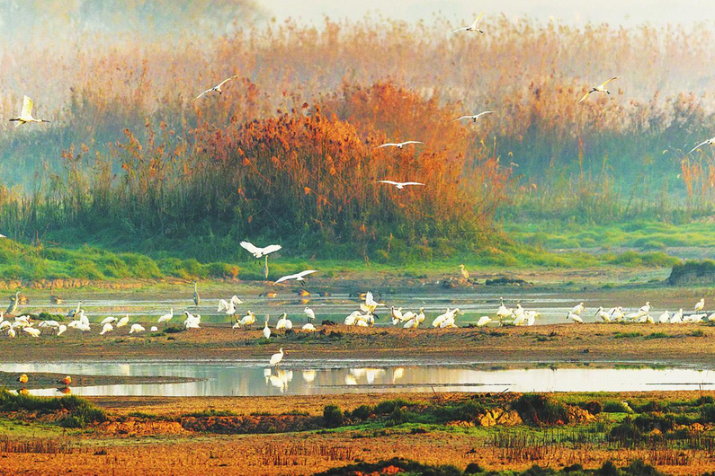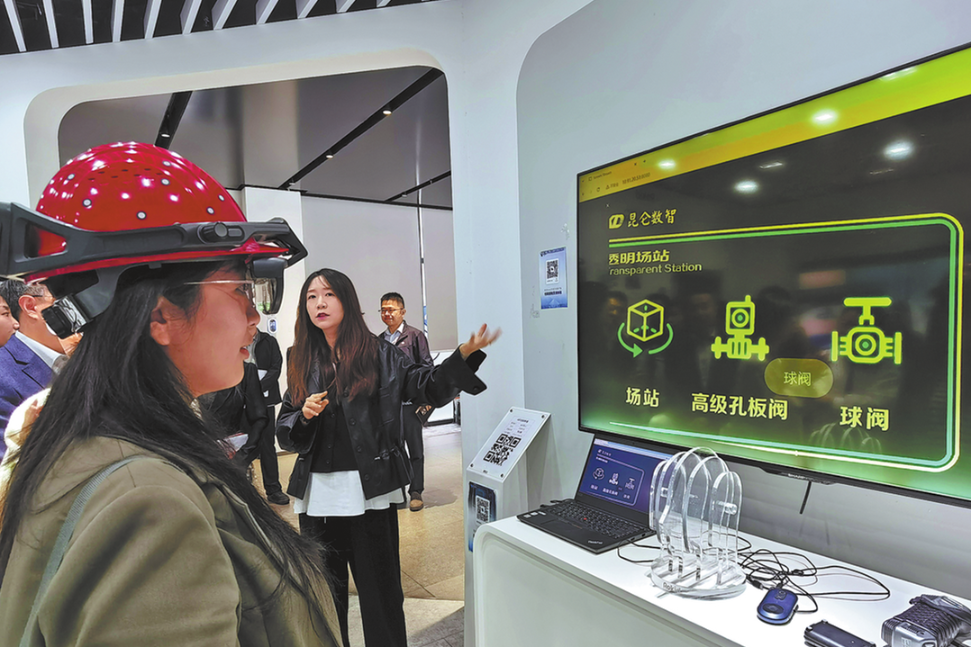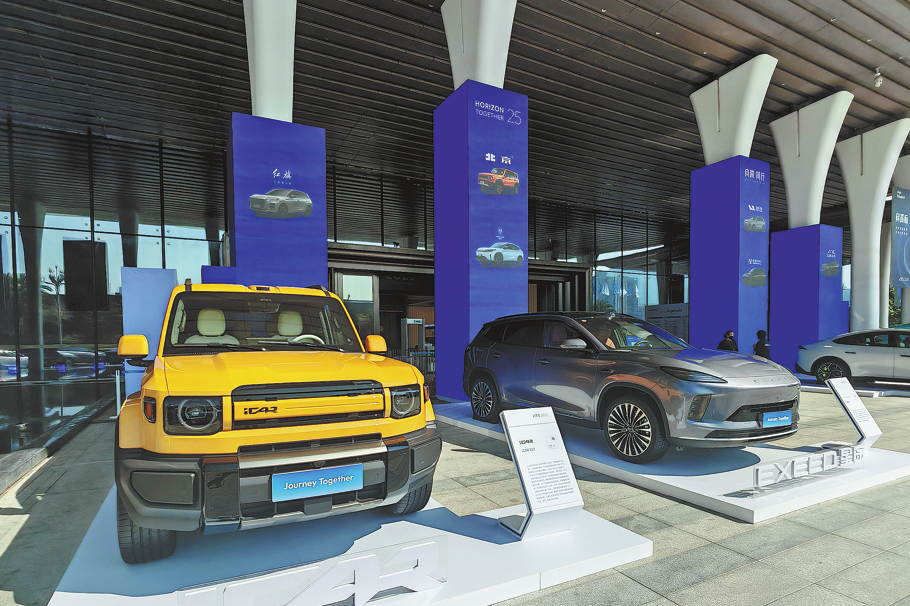Hands joined for progress

Experts says it's time for continental approach to relations with China
African experts are pushing for a continental foreign policy toward China, saying this would make the China-Africa relationship more robust. They say such a policy would not only make Africa's engagements with China sustainable, but also embolden the continent's global participation.
"Without a plan, the continent and governments lack clear strategies for engagement with China," says Bob Wekesa, a post-doctoral fellow at the University of Witwatersrand in Johannesburg, South Africa.

| Workers sew jeans in a garment factory invested in by a Chinese company in Dar es Salaam, Tanzania. Li Sibo / Xinhua |
"Conversely, you cannot have strategies without an overall policy as a broad and long-term framework. Evidence abounds. China has been successful in implementing the (Forum on China-Africa Cooperation) action plan because the FOCAC action plans are linked to China's policy toward Africa, which is in turn linked to broader Chinese economic and foreign policy positions.
"Africa and African countries have been less successful ... because they do not have a reviewable policy framework that would provide a road map for engagement," says Wekesa.
Toward this end, experts from several African countries met in Johannesburg during the summer for a one-day event with the theme "China-Africa: High time for a common integrated Africa policy on China".
They hope to have a document approved by next year, a deadline that would also coincide with the end of the three-year implementation time frame set for the action plan at the FOCAC Summit in South Africa in 2015.
But progress has faced challenges. "This conversation of having an African policy toward China and international partners has been ongoing for some time now," says Zhou Yuyuan, a senior fellow at the Center for West Asian and African Studies at the Shanghai Institutes for International Studies.
"There has been some progress on the (African Union) Agenda 2063. ... It is not easy to work out an integrated policy in Africa, because of the diversity of member states," Zhou says.
However, China's engagement with several African countries on the FOCAC platform has given impetus to the experts' push for a continental road map.
In a little more than a decade, China has released two Africa policy white papers. The first, in January 2006, came six years after the launch of FOCAC, while the second was launched right before the Johannesburg Summit in December 2015.
In addition, a recent report by Ernst & Young, "Africa Attractiveness", says China has invested in 293 foreign direct investment projects since 2005 with a total outlay of $66.4 billion, creating 130,750 jobs, which it says makes China the single largest contributor of foreign direct investment and jobs in Africa.
Moreover, China has consistently followed through on its commitments. According to Xiao Yewen, the counselor of the Chinese embassy in South Africa, nearly half of the $60 billion pledged by President Xi Jinping during the 2015 FOCAC Summit has been disbursed.
An initial contribution of $10 billion has been made to the China-Africa Fund for Production Capacity Cooperation, he says, and a special loan for the development of African SMEs has been bolstered with $5 billion of additional funding. Additionally, he said, three infrastructure projects financed and built by China - the Djibouti-Ethiopia railway, the Mombasa-Nairobi railway in Kenya and the Abuja-Kaduna railway in Nigeria - have been completed.
Regarding a continental road map, Xiao says: "A coherent approach would make it easier for Chinese companies to invest and operate across African borders as they seek better markets. The entrepreneurs are looking for opportunities and will be more willing to invest when they are regulated by a single coherent policy rather than 54 governments."
Tawana Kupe, vice-principal at the University of the Witwatersrand, also called for a unified approach. "The China-Africa relationship is of major global interest, and thus it should be handled delicately, as it will be a point of reference in future global relationships. Unfortunately, Africa's attitude has been lackluster, thus making the relationship with China asymmetrical. We need coherency."
Philani Muthembu, the executive director of Institute for Global Dialogue, a foreign policy think tank based in Pretoria, South Africa, says all stakeholders on the continent should become involved in the crafting of a continental foreign policy with China to make it inclusive.
He adds that China's meteoric rise to become the world's second-largest economy makes it a country to be reckoned with.
"China is no longer an emerging power. It already has influence across its borders, and this is visible in Africa. ... We therefore need to build a sustainable and robust relationship with it."
Paul Tembe, a consultant at the Thabo Mbeki African Leadership Institute at the University of South Africa, says African nations have traditionally "adopted an individualistic approach toward China. This means that countries do not share a common approach when engaging with China. For a coherent road map to be developed, the continent has to move away from historical narratives and create a new platform agreed to by all."
Historical ties will be hard to shake off, but countries should learn from successful models, he says. "Rwanda, Ethiopia and South Africa have been successful in their engagements with China. This can be a starting point. Use lessons learned and let us build from there."
Tembe's sentiments echo a recent McKinsey & Co report - "Dance of the lions and dragons: How are Africa and China engaging, and how will the partnership evolve?" - in which researchers found that African countries are successfully engaging with China in diversified ways.
Robust partnerships were found in Ethiopia and South Africa, which have a clear strategic posture toward China, along with a high degree of economic engagement in the form of investment, trade, loans and aid, the report says.
"For example, both countries have translated their national economic development strategies into specific initiatives related to China, and they have also developed important relationships with Chinese provinces in addition to Beijing," it says. "As a result, China sees these African countries as true partners: reliably engaged and strategic for China's economic and political interests."
It called Kenya, Nigeria and Tanzania solid partners, but it said they lacked the same level of engagement with China as Ethiopia and South Africa. Although there is visible Chinese investment in these countries, the researchers attributed it to a passive posture and historical ties.
"Much more is possible with true strategic engagement," the report says.
Meanwhile, Zhou Yuyuan of the Shanghai Institutes for International Studies notes that Africa already has a common front when dealing with global issues such as climate change, the (United Nations') post-2015 agenda and aid effectiveness.
However, Zhou says, "These are mainly positions, not policies, which are not binding. Second, the influence of the (African Union) and regional communities is not localized. Nevertheless, I think an ideal starting point should be a framework designed at the AU level. This approach typically offers some degree of help to African states to build their lawmaking and enforcement, such as relating to business, tax, investment, labor and environmental issues."
Wekesa, the post-doctoral fellow at the University of Witwatersrand, agrees that Africa's development blueprint, Agenda 2063, offers a template. He adds that although coming up with a continental approach may face hurdles, it might be the best approach.
"The policy can therefore be country-led, regional or continental. They can all exist in harmony. We can look and start from points of convergence or divergence," he says.
For starters, Africa can latch onto China's charm offensive to find its industrial revolution footing, he says. "China's input in Africa is still small, albeit significantly benefiting our economies. There has been a move, even in governmental levels, to bridge the gaps that would ease this engagement. The ground is fertile for a more robust road map."
Yu-Shan Wu, a senior researcher of foreign policy at the South Africa Institute of International Affairs in Johannesburg, says industrialization, peace and security, research on sustainable development, innovation and capacity-building are areas of interest for China and Africa alike.
"Most African experts, however, are yet to understand China because of their backgrounds in Western education," she says. "Governments have to use Africans who are Chinese graduates to shape this agenda."
She adds that an African policy should be unique and be able to not only guide engagements with China, but other new and old players as well. "You do not have to replicate what China has done, but come up with an indigenous strategy that strategically positions Africa's comparative advantages. That is the strength you need to leverage with the rest of the world."
lucymorangi@chinadaily.com.cn
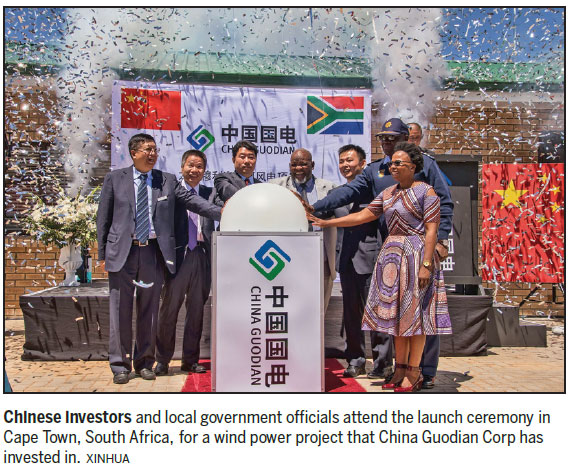
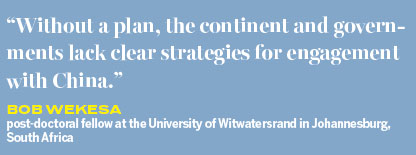
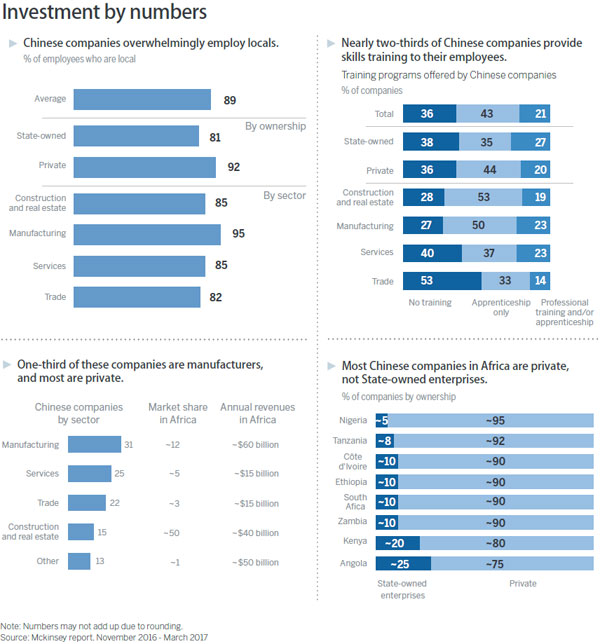
(China Daily Africa Weekly 11/24/2017 page1)
Today's Top News
- HKSAR chief issues security warning after Jimmy Lai conviction
- Jimmy Lai's verdict sends clear messages
- Japanese scholar condemns Japan's risky defense spending
- Xi stresses strategic importance of work to raise minors' moral standards
- Jimmy Lai found guilty of colluding with foreign forces
- Hong Kong court opens session to deliver verdict on Jimmy Lai's case
















